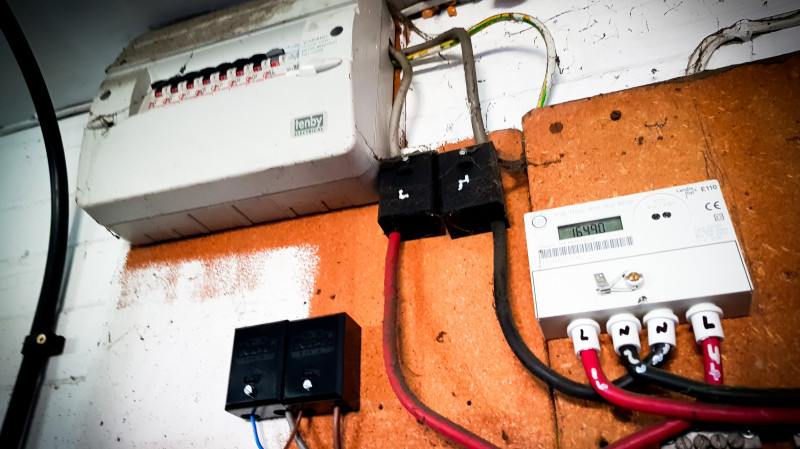You are here: Do I need to turn off the power when rewiring my house?
When replacing a bulb, it is common sense to switch off the light – and, if you are working with a lamp, unplug it from the wall. But what about bigger jobs? Is it safe to replace a plug socket without switching off at the fuse box first?

Mains myth buster
While voltage gets the bad press, it doesn’t often kill. The more likely culprit is amps. There are several ways to express the relationship between volts and amps, but one of the clearest is to compare them to a river. If volts was the measure we used to describe the angle of a riverbed and amps gauged the volume of water flowing across it, you can immediately see that a steep riverbed (high volts) with very little water (low amps) wouldn’t be nearly so dangerous as a shallow riverbed (low volts) being deluged (high amps). The water might flow more slowly in the latter example but, if you fell in, your chances of making it back to shore would be significantly poorer. Likewise, a low voltage supply with a high amperage has far greater potential to injure or kill you than a high voltage supply with low amperage.
So, when working out whether your household supply has the potential to kill you (spoiler: it does), focus not on the 240v streaming in to your sockets but the 32,000mA (milliamperes) they are fed by your fuse box. Touch a 20mA supply – far less than a socket’s potential – and, aside from receiving a significant shock, you could find yourself incapable of letting go until someone cut the power. Beyond 100mA, there is a serious risk of death, and even if you survived you could end up burned (and worse if you have a pacemaker).
Don’t cut corners
Fuse boxes aren’t always easily reached. If yours is in an under stairs cupboard, you might have to dig through a pile of coats to find it. If it is out in the garage, you might need to dart through the rain. In the kitchen? It could be too high to reach without standing on a stool. In situations like this, it can be tempting to look for get-arounds that will save you switching off. This is almost always a mistake.
If you assumed a pair of rubber gloves would keep you insulated, think again. If they are not dedicated insulating gloves you might be no better off than touching the wire with your bare hands, so don’t assume that a barrier between your skin and the supply will keep you safe. The same is true of non-metal ladders. While wood is an inefficient conductor of electricity, it won’t necessarily protect you from being earthed; particularly if it is damp, so beware of using any kind of ladder in a bathroom, kitchen or outdoors when working on your electrics.
The advice, then, is to always switch off at the fuse box when working on sockets and hard-wired products. Disconnect from the mains anything that you can, like a bedside lamp or countertop microwave oven and, even then, take care: many objects carry a charge, even when they are unplugged.
If in doubt, call on a professional. Whatever they charge is money well spent if it keeps you safe.
If you are looking for help with any electrical issues, you may find some of these services useful:
Electricians
Get contact details for Electricians near to you. View the Feedback from other Customers to help you make an informed choice.
Electrical Reports
Find an Electrician to produce an Electrical report (sometimes known as an Electrical Installation Condition Report - or EICR) for a property.
Smart Home Technology
If you are looking for an Electrician to help with Smart Home Technology
Kitchen / Bathroom Electrics
If you are looking for an Electrician to help with Kitchen or Bathroom Electrics
LED Lighting
If you are looking for an Electrician to help with LED Lighting
Electric Heating Installation
If you are looking for an Electrician to install Electric Heating
Electric Vehicle Charging Point Installation
If you are looking for an Electrician to install an Electric Vehicle Charging Point
Security and Fire Alarms
If you need a fire or security alarm installing